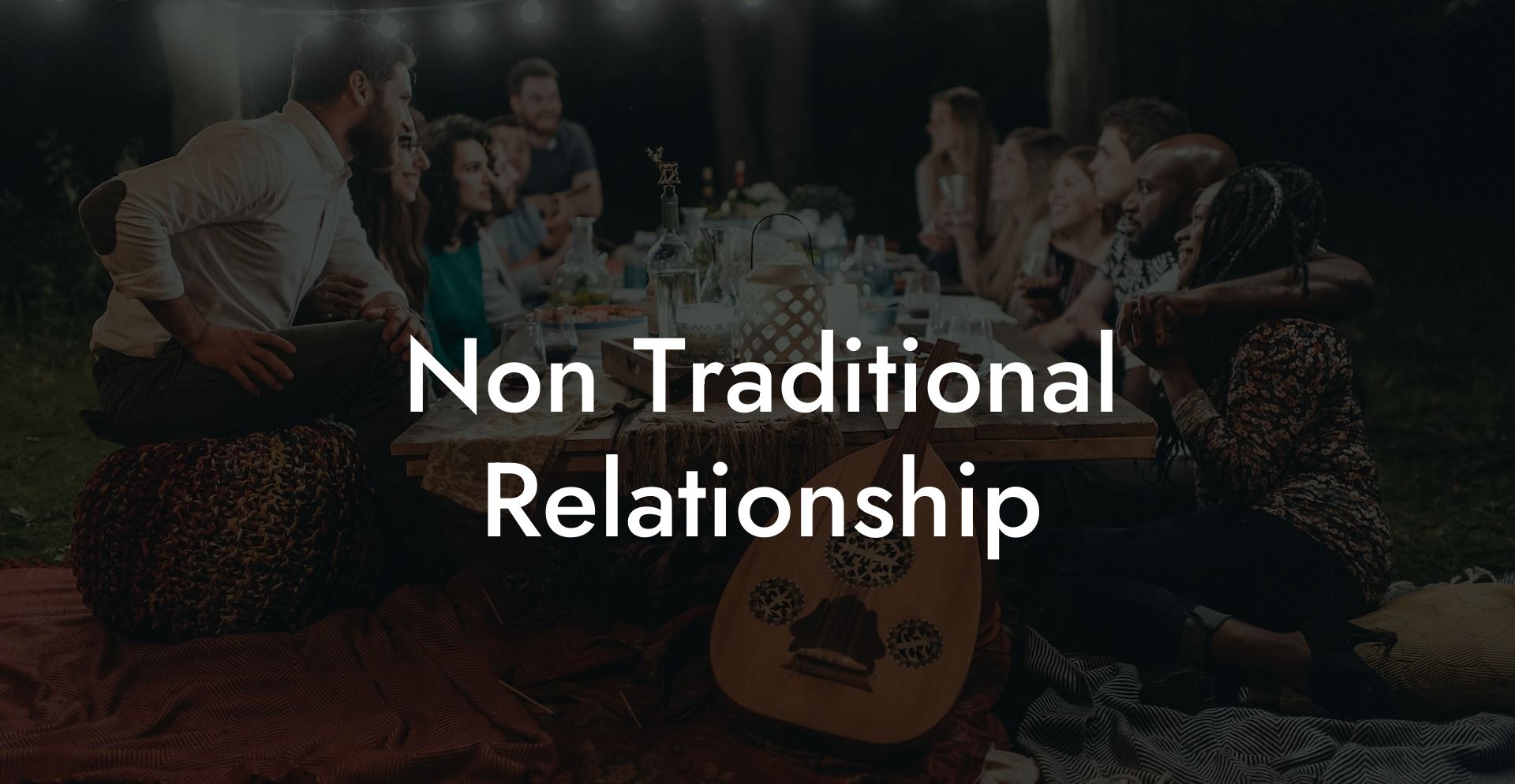The world of love and relationships is vast, and as society progresses, we are opening our hearts and minds to the many ways people can connect and commit to one another. In this article, we explore non-traditional relationships, examining the challenges and advantages they bring, and help you consider if a less conventional partnership may be a better fit for you.
Non Traditional Relationship Table of Contents
What Are Non-Traditional Relationships?
Non-traditional relationships refer to various types of partnerships that diverge from the monogamous, heterosexual relationships historically viewed as the norm. These relationships can take many forms, some of which we will detail below:
Polyamorous Relationships
Polyamory is a form of non-monogamy where all involved partners are transparent about their multiple romantic and sexual connections. This type of relationship requires trust, open communication, and healthy boundaries to navigate the complexities of multiple loving partnerships.
Open Relationships
Open relationships are partnerships where both individuals agree to seek and engage in romantic or sexual encounters outside of their primary relationship. This arrangement allows for exploration and experimentation while maintaining the emotional and supportive bond with their primary partner.
Long-distance Relationships
While not as unconventional as the previous examples, long-distance relationships defy traditional expectations of couples living in close proximity. This arrangement can be difficult due to the lack of physical connection but also fosters strong communication skills and emotional intimacy.
Same-sex Relationships
Although legal and social acceptance for same-sex relationships has improved in many areas, they still face stigma from some communities and can be considered non-traditional by outdated standards.
Challenges and Advantages of Non-Traditional Relationships
Non-traditional relationships come with unique obstacles and opportunities that set them apart from their conventional counterparts. It is essential to weigh the pros and cons to determine if a less conventional partnership is the right choice for you.
Challenges
- Stigma and misconception: Non-traditional relationships can be misunderstood by those outside the dynamic, leading to judgment and disapproval.
- Communication: Transparency, emotional intelligence, and active listening are vital in maintaining trust and understanding in any relationship but become even more crucial when navigating less conventional arrangements.
- Legal difficulties: Depending on your location, same-sex and polyamorous relationships may face bias in housing, employment, and marriage rights.
Advantages
- Personal growth and learning: Engaging in non-traditional relationships can prompt individuals to examine their preconceived ideas about love and explore different ways of connecting and commitment.
- Emphasis on communication: The need for open and honest conversations can strengthen bond and foster emotional intimacy between partners.
- Increased support and love: Polyamorous and open relationships can provide a larger network of emotional and practical support for those involved.
Non Traditional Relationship Example:
Samantha and Alex have been in an open relationship for two years. As they had been friends since college, their transition into a romantic partnership was seamless. However, both valued their individual freedom and sexual autonomy, so they decided on an open relationship arrangement. They set boundaries concerning communication, protection, and regular check-ins to ensure their primary connection remains strong. Despite occasional challenges, their relationship has grown stronger through their ability to navigate these complex dynamics together.
As we explore various ways of loving, we recognize that there is no one-size-fits-all model for any relationship. Non-traditional relationships provide a valuable alternative for those who seek alternatives to conventional partnerships. With understanding, empathy, and a drive for continuous growth, we can redefine love and connection to best suit our individual needs. We encourage you to share this article with anyone who may be curious about non-traditional relationships and explore other resources on The Monogamy Experiment to expand your knowledge of love and commitment.













